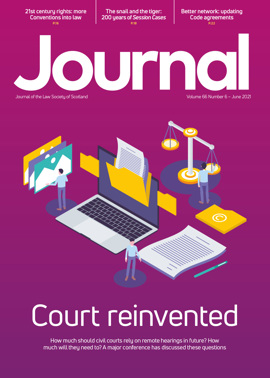The Word of Gold: The truth is out there – isn’t it?

“Truth is like the sun”, said the great philosopher, Elvis Presley. “You can shut it out for a while, but it ain’t goin’ away”. “We can’t go on together, with suspicious minds”, he might have added, but it’s remarkable how many of our most revered institutions seem suddenly to deserve our suspicion, and flinch in the sunlight’s glare.
Few organisations have a more benign image than the Post Office. Yet the erstwhile bosses of Postman Pat are now exposed as responsible for ruining countless lives, as they continued to launch fraud prosecutions long after doubts emerged about their dodgy software. They have only now abandoned their efforts to maintain gagging clauses, preventing anyone compensated from speaking out.
This scandal has led to calls for an end to private prosecutions. Only the state, we are told, with its robust checks and balances, and guaranteed integrity, should have the power to haul citizens before the courts. One can imagine how well this has gone down in the homes of the victims of the botched, allegedly malicious Rangers prosecution, recipients so far of over £25 million of taxpayer-funded compensation.
Never mind, there’s always the BBC. Or at least there was, until along came Martin Bashir, with his phoney bank statements, ingratiating manner, and the freedom to operate in a supervisory environment equipped with not one, but two Nelsonian eyes.
The concept of objective truth is under sustained attack. Instead, we are encouraged to speak “our truth”. “Post-truth”, the Oxford English Dictionary’s word of the year in 2016, has been defined as “Relating to, or denoting circumstances in which objective facts are less influential than appeals to emotion or belief, in shaping public opinion”. Recently, the concept of a right or wrong answer in mathematics has been condemned as inherently racist. Instead, it is apparently preferable to intuit the answers. One wonders what Einstein would have made of this, but it’s likely he would have revisited his famous definition of insanity.
Things are no better across the Pond, where legislators running scared of the Trumpian mob continue to maintain that last November’s election was stolen from him. As historian Timothy Snyder wrote of the storming of the US Capitol, “Post-truth is pre-fascism... When we give up on truth, we concede power to those with the wealth and charisma to create spectacle in its place. Without agreement about some basic facts, citizens cannot form the civil society that would allow them to defend themselves. If we lose the institutions that produce facts that are pertinent to us, then we tend to wallow in attractive abstractions and fictions... Post-truth wears away the rule of law and invites a regime of myth.”
Honesty: what’s your policy?
Good professionals understand the fundamental importance of integrity, but the way they promote themselves seems often to prioritise spectacle. “We’re innovative!” “We’re huge!” “We’re the best!” It’s vanishingly rare to see, “We’re committed to truth and honesty in all our dealings with our clients and one another”. Too prosaic, perhaps, or vulnerable to cynicism. Yet in a world where many similar organisations yearn to be thought of as distinctive, and strive, sometimes beyond credulity, to create points of difference, it’s easy to overlook the enduring attraction of what used to be thought of as traditional values.
Trust is at the heart of all relationships worth having. It has been said that in business there are three kinds of people: the unsuccessful, the temporarily successful, and those who become and remain successful. The difference is character. It is possible to be temporarily successful through dishonesty, and that is why for some it will always be attractive. But that kind of outright crookedness is comparatively rare. More common, and in its own way as corrosive, is the moral failure to admit reality, face up to its consequences and make difficult, but necessary decisions.
The “Post Office-truth” prosecutions are an instructive case in point. No doubt all of its executives at the time would have described themselves as honest people, with a strong code of ethics. Paula Vennells, the chief executive between 2012 and 2019, is an ordained Anglican priest. Yet it was apparently too hard for too long to acknowledge that they had presided over an appalling injustice. The truth emerged despite, not because of them, and the stain on their reputations is now far greater than if they had elected to own up and make amends.
Of all the qualities necessary for leadership, and indeed for a successful life, the most important are the ability to see the world as it is, not as we would wish it to be, the courage to act accordingly, and the willingness, indeed the desire, to have our beliefs challenged. It’s candour that marks out the greats, not infallibility. And that’s the truth.
Perspectives
Features
Briefings
- Criminal court: Doing justice with benefit fraud
- Corporate: Clarity is king – win some, lose some
- Agriculture: TFC provides holdings compliance guide
- Employment: Unintentional wrongs and injured feelings
- Sport: Where now for worker status?
- Intellectual property: IP and artificial intelligence
- Property: EWS1: another hurdle for the lawyer
- Scottish Solicitors' Discipline Tribunal
In practice
- Society's new office bearers step up
- AGM hears of a challenge met
- How do you manage the bank manager?
- Letters of engagement: one size does not fit all
- Climate change, inequality and the profession
- Fairness and justice: nice and simple does IT
- Profile: Craig Connal
- The Eternal Optimist: Difficult, or just different?
- Ask Ash: An anxious return






